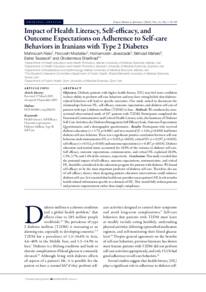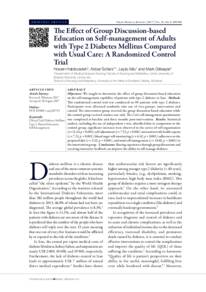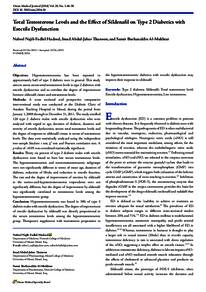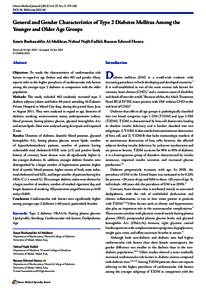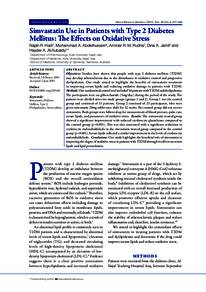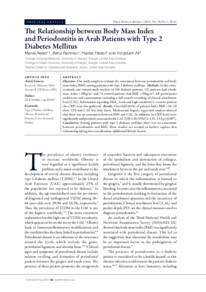وثيقة
Impact of health literacy, self-efficacy, and outcome expectations on adherence to self-care behaviors in Iranians with Type 2 diabetes.
المعرف
DOI 10.5001/omj.2016.10
الناشر
Oman Medical Specialty Board.
ميلادي
2016-01
اللغة
الأنجليزية
الملخص الإنجليزي
Objectives: Diabetic patients with higher health literacy (HL) may feel more confident in their ability to perform self-care behaviors and may have strong beliefs that diabetes-related behaviors will lead to specific outcomes. Our study aimed to document the relationships between HL, self-efficacy, outcome expectations, and diabetes self-care of patients with type 2 diabetes mellitus (T2DM) in Iran. Methods: We conducted a cross-sectional observational study of 187 patients with T2DM. Participants completed the Functional Communicative and Critical Health Literacy scale, the Summary of Diabetes Self-Care Activities, the Diabetes Management Self-Efficacy Scale, Outcome Expectations Questionnaire, and a demographic questionnaire. Results: Participants who received diabetes education (t = 5.79, p<0.001) and were married (F = 3.04, p<0.050) had better diabetes self-care behavior. There was a significant positive correlation between self-care behaviors and communicative HL (r = 0.455, p<0.010), critical HL (r = 0.297, p<0.010), self-efficacy (r = 0.512, p<0.010) and outcome expectations (r = 0.387, p<0.010). Diabetes education and marital status accounted for 16.9% of the variance in diabetes self-care. Self-efficacy, outcome expectations, communicative, and critical HL explained 28.0%, 1.5%, 3.7%, and 1.4% of the variance, respectively. Conclusions: This study revealed that the potential impact of self-efficacy, outcome expectations, communicative, and critical HL should be considered in the education program for patients with diabetes. We found self-efficacy to be the most important predictor of diabetes self-care. Therefore, the use of self-efficacy theory when designing patient education interventions could enhance diabetes self-care. It is essential that health care providers assess patient's HL levels to tailor health-related information specific to a domain of HL. This would fully inform patients and promote empowerment rather than simple compliance.
المجموعة
URL المصدر
zcustom_txt_2
Popova, Yulia V. (2016). Impact of health literacy, self-efficacy, and outcome expectations on adherence to self-care behaviors in Iranians with Type 2 diabetes. Oman Medical Journal, 31 (1), 52-59.
قالب العنصر
مقالات الدوريات

